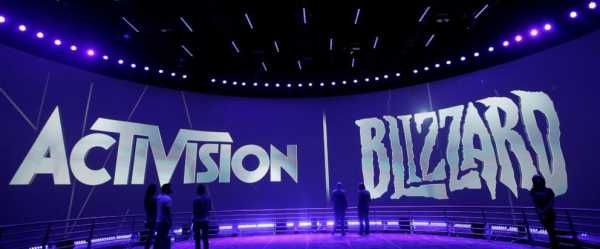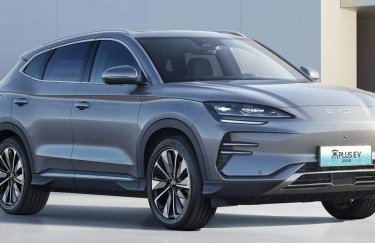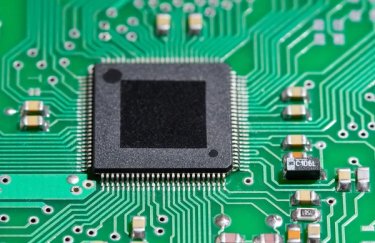
SAN FRANCISCO — Microsoft CEO Satya Nadella is due in court Wednesday to defend the company's proposed $69 billion takeover of video game maker Activision Blizzard against an attempt by federal regulators to block the deal.
Nadella and Activision Blizzard CEO Bobby Kotick are both scheduled to testify before U.S. District Judge Jacqueline Scott Corley on the fourth day of a court hearing in San Francisco. The proceedings are likely to make or break what would be the most expensive acquisition in technology history.
The hearing represents a major test of the FTC’s amped-up oversight of Big Tech under Chairperson Lina Khan, who has been outspoken about her belief that U.S. regulators were too lenient in past deals that helped increase the power of companies such as Amazon, Google and Facebook. The courtroom tussle with Microsoft comes six months after the FTC took Facebook owner Meta Platforms to court in Silicon Valley to try to stop a takeover of a virtual reality fitness company only to be rebuffed by the judge in that case.
Microsoft, maker of the Xbox console, has hailed the deal with Activision Blizzard as a way to make popular Activision games such as Call of Duty more widely available. But federal antitrust enforcers, as well as Microsoft's main gaming rival Sony, have argued that it would harm competition.
The U.S. Federal Trade Commission is trying to persuade Corley to issue an order that would prevent the takeover from being consummated before a more extensive administrative trial begins Aug. 2 in Washington. Microsoft is fighting to close the deal ahead of a July 18 deadline that could trigger it having to pay a $3 billion breakup fee to Activision.
Microsoft struck the deal 17 months ago in hopes of expanding its video game imprint beyond Xbox, which has about half the market share of the longtime industry leader Sony and its PlayStation device.
The FTC has been fighting to block a deal that it fears will enable Microsoft to make popular franchises such as Call of Duty and World of Warcraft exclusive to the Xbox and online subscription services that are becoming an increasingly bigger part of the $210 billion worldwide video game market. The sector is already larger than the movie and music industries combined.
The court also heard this week from Sony gaming executive Jim Ryan, whose testimony came from a videotaped deposition.
Recorded in April, Ryan said he initially expressed little worry about the acquisition after private conversations with Kotick and Xbox chief Phil Spencer. But Ryan said he later came to believe Microsoft would leverage Call of Duty's popularity to disadvantage PlayStation, particularly in the U.S., where first-person shooting games are popular.
“The harm to (Sony) arises from gamers deserting our platform and going to Xbox,” said Ryan, the CEO of Sony Interactive Entertainment. Even if Microsoft followed through with a pledge to keep the game on PlayStation, Ryan said there could still be “some form of degraded experience for PlayStation gamers.”
Microsoft has accused the FTC of ignoring pressure the company’s gaming division will be under to deliver profit margins that justify the huge price being paid for Activision and the fierce backlash likely from highly opinionated video game fans if a popular franchise such as Call of Duty is withheld from other platforms.
Harvard University economist Robin Lee, a hired expert brought in by the FTC, testified Tuesday that such backlash would likely be offset by the “pretty substantial economic benefits” Microsoft could get by shutting out rivals from access to Call of Duty and other popular games, such as by allowing Xbox users to get earlier or better versions of the game.
Lee's testimony led the judge to remark Tuesday that “all the testimony has been about Call of Duty in this case,” and to ask whether that might distinguish the acquisition from other game industry deals that have been challenged on similar grounds.
“It’s a unicorn in the durability, in the popularity, in the numbers,” Corley said. “it certainly stands out.”
Microsoft has pointed to commitments it has already made to make Call of Duty available on Nintendo’s Switch console and a Nvidia gaming subscription service as evidence that the Activision deal would benefit consumers.
Microsoft also tried to present evidence that Sony is trying to blow up the deal to preserve its giant lead in the console market.
The proceedings are scheduled to conclude Thursday. Another major regulator, the U.K.’s Competition and Markets Authority, also has taken action to thwart Microsoft’s takeover.
—————
AP Technology Writer Michael Liedtke contributed to this report.
Sourse: abcnews.go.com






